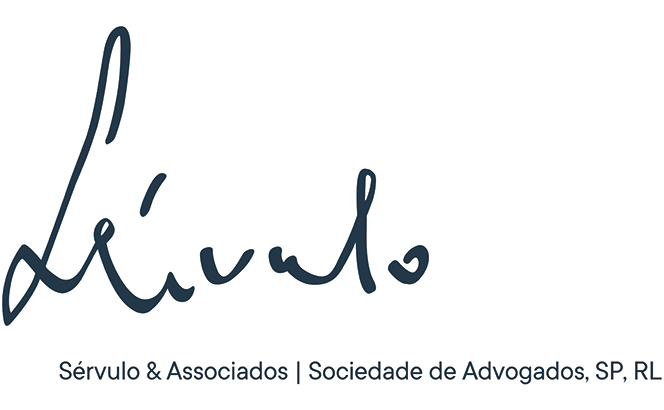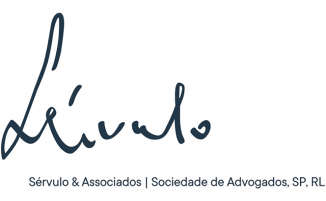The health sector in Portugal, which encompasses the pharmaceutical market, is a prominent and fast-evolving sector that has undergone significant growth in recent decades.
Sérvulo & Associados law firm is proud to have a highly specialised, experienced and well-balanced team in the life sciences field. The team covers all the main legal matters of the health and pharmaceutical industry, acting and providing guidance on a broad range of issues. These include patent trademark litigation within the pharmaceutical sector, but also advice on regulatory matters, data privacy for clinical research, and patient support programmers, as well as distribution and supply agreements to the industry.
The life sciences team at Sérvulo has a comprehensive knowledge of the legal and regulatory environment in Portugal and is a trusted legal advisor to numerous renowned brands. The team handles primary cases on patent litigation of generics versus reference medicine companies, including substances as Apixaban, Bortezomib, Fingolimod, Levonorgestrel, Sorafenib and Sitagliptin.
Sérvulo provides assistance and support to companies and associations in all relevant regulatory areas concerning medicinal products, such as medicines, medical devices, cosmetics, nutrition products and other related borderline products. This includes covering, inter alia, clinical trials and other clinical investigations, good manufacturing and distribution practices, authorisation procedures, advertising, publicity and information, reimbursement, pharmacovigilance, post-authorisation studies, and all other related issues.
Our life sciences practice is co-led by the equity partners Ana Rita Paínho and Miguel Gorjão-Henriques. The team also includes the junior partner Mariana Costa Pinto, two associates Francisco Marques de Azevedo and Paulo Meireles de Oliveira, and two junior lawyers Catarina Ferreira da Silva and Leonor Ruano Silveira.
1. Regulatory compliance: Can you explain the key regulatory compliance issues for life sciences companies operating in Portugal?
Compliance is a flag given extreme importance in any Portuguese company, especially in the life sciences sector which is governed by a stern legislation that guides these companies’ careful actions in the market.
Decree-Law no. 176/2006 of 30 August sets the legal regime for human use medicines and Decree-Law no. 145/2009 of 17 June the same for medical devices, along with EU Regulation 2017/745. Those regimes are then consolidated with an extensive set of further regulation, namely in market access, pricing, advertising, amongst others.
An interesting compliance issue that the industry tackles with is advertising. This is regulated, besides the above-mentioned legislation, by the general Portuguese Publicity Code (Decree-Law no. 330/90 of 23 October) and Decree-Law no. 5/2017 of 6 January which establishes general advertising principles for medicines and medical devices. Additionally, INFARMED (the National Authority for Medicines and Health Products), often issues informative announcements to shed light on advertisement rules in the sector.
Some blatant rules are the prohibition on advertising medicines subject to medical prescription, as well as medicines reimbursed by the National Health System and medicines containing substances defined as narcotics or psychotropics, under international conventions binding on the Portuguese state. Moreover, both medicines and medical devices advertising campaigns must be submitted to the INFARMED for evaluation and these campaigns shall not include a vast list of suggestions, guarantees, or incite to any unsafe attitudes from the consumers. As for medical devices, advertising them to the public is forbade if they require a health professional intervention. Furthermore, an extensive set of information relating to the medicine or medical device is mandatory to be included in the advertisement.
For those reasons and more, considering the contingencies attached to acting within the life sciences industry, it is quite a challenge for the providers to advertise medical products without breaching their obligations and potentially being issued large fines by INFARMED.
2. Intellectual property protection: How does Portuguese law protect intellectual property in the life sciences sector, and what are the steps to secure these rights?
The Portuguese Industrial Property Code provides a comprehensive set of relevant rules for the protection of inventions, not only regarding patents but also by consecrating the utility model’s figure as an available intellectual property right and by allowing the patent holder to obtain a supplementary protection certificate.
Patent infringement actions are to be brought before the Intellectual Property Court, including the filing of requests for preliminary injunctions. As for revocation, this is a common defence in infringement proceedings and presented as a counterclaim by most defendants in those.
In Portugal, the common challenge is for pharmaceutical patent holders to tackle with Law 62/2011 of 12 December: a special regulation that settles a regime for disputes between reference medicine companies and generics, allowing for the former to file a patent infringement action when in cause is the request of a market authorisation for the same drug, pursued by the latter.
The challenging task in the future will be how to make this whole established regime compatible with the integration of the Unified Patent Court, which is already in function and has jurisdiction in Portugal.
3. Product liability: What are the product liability risks for life sciences companies in Portugal, and how can we mitigate them?
The manufacture, export and distribution of medicines is subject to the rules and good practices set in the general regime of Decree-Law no. 176/2006. However, regarding the liability of producers, the general civil liability regime applies in conjunction with the regime of producer´s liability for faulty products, Decree-Law no.383/89 of 6 November (which transposes EU Directive no. 85/374/CEE).
The difficulty in the absence of a specific liability regime applicable to health products makes it difficult for the injured party to prove that all the requirements for liability have been met, especially the causal link between the administration of the medicine and the manifestation of the adverse reactions, since the evidence is extremely difficult to obtain.
Despite that, if life sciences companies are thorough in obeying the established regulations for medicines and medical devices production and distribution, namely, the clinical trials requirements, they will have a safe shield of protection for product liability actions.
4. Clinical trials regulation: What are the legal requirements for conducting clinical trials in Portugal?
Besides the principles set in Decree-Law no. 176/2006, clinical trials on medicines are regulated by the EU Regulation 536/2014 and Law 21/2014 of 16 April, the Clinical Investigation Law.
From 31 January of 2023, new applications for clinical trials must be submitted to the newly functioning EU Clinical Trials Information System, despite some medicine trials being subject to previous INFARMED authorisation, involving gene and cell therapy and genetically modified organisms.
Then it is up to INFARMED, as the chosen reporting member state, to analyse the application. All the process is regulated by Regulation 536/2014.
As for medical devices, the clinical trials on these are set in the EU Regulation 2017/745 (the Medical Devices Regulation) and in the general regime from Decree-Law no. 145/2009. Applications to conduct those trials must be filed within the member state in which the trial will be conducted, thus, the INFARMED.
5. Market access and pricing: How does the Portuguese healthcare system regulate market access and pricing for pharmaceuticals and medical devices?
Concerning market access, the process of obtaining market authorisations for medicines is thoroughly established in Decree-Law no. 176/2006. The market authorisation, once granted, is valid for five years with the possibility of a renewal, subject to an evaluation process on itself.
Regarding medical devices, as provided by Decree-Law no. 145/2009, no authorisation is required for their commercialisation, but the manufacturer must submit to the competent authority a notice of commercialisation accompanied by a compliance information within the legal provisions.
The pricing and state reimbursement for medicines and medical devices follows the rules established in Decree-Law 97/2015 of 1 June, without prejudice to their subsequent implementation in numerous ordonnances regulating the specific procedures for pricing arrangements and reimbursement.
Medicines not subject to reimbursement do not have pricing limitations but all other medicines (prescription and non-prescription) do so, being subject to the maximum price regime (procedure regulated by Ordonnance no. 195-C/2015, of 30 June) and cannot be marketed without obtaining a retail selling price. The maximum price is then fixed by INFARMED. The same applies for medical devices reimbursed and not reimbursed by the state.
As for state reimbursement, the common procedure is regulated by Ordonnance no. 195-A/2015 of 30 June and is solicited by the holder of the market authorisation. The power to decide on reimbursement is designated to the Health Ministry but commonly delegated to INFARMED. For the year 2023, this competence was delegated to INFARMED by means of an order (Order no. 5399/2023 of 10 May).
6. Emerging trends and legislation: What are the current emerging legal trends or upcoming legislation in Portugal that could impact the life sciences industry?
In addition to the challenges already mentioned, special mention should also be made to the EU Regulation 2017/746 on in vitro diagnostic medical devices and the previously mentioned EU Regulation 2017/745 on medical devices. These, unequivocally, will set a change in the regime established in Portuguese law (Decree 145/2009 and Decree-Law 189/2000 of 12 August for the legal harmonisation of in vitro diagnostic medical devices). These regimes have not yet met legislative amendments that take into account the regulations, which are in the pendency of the legislative process, ongoing.
For more information contact
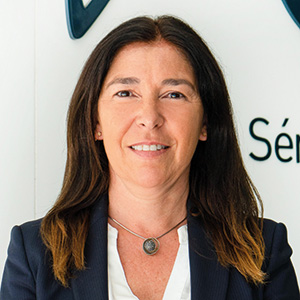
ANA RITA PAÍNHO
Partner
E: arp@servulo.com
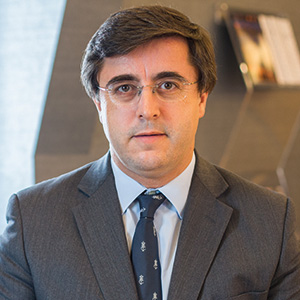
MIGUEL GORJÃO-HENRIQUES
Partner
E: mgh@servulo.com
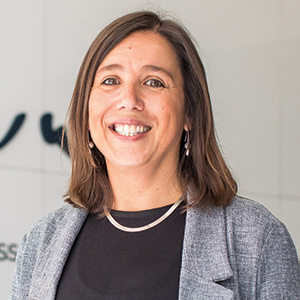
MARIANA COSTA PINTO
Partner
E: mcp@servulo.com
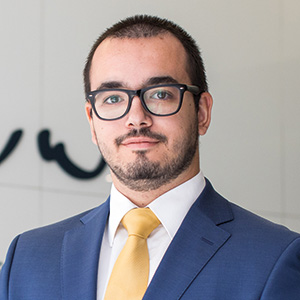
FRANCISCO MARQUES DE AZEVEDO
Associate
E: fma@servulo.com
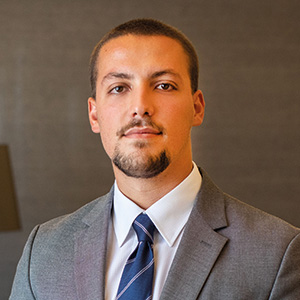
PAULO MEIRELES DE OLIVEIRA
Associate
E: pmo@servulo.com

CATARINA FERREIRA DA SILVA
Trainee lawyer
E: cfs@servulo.com
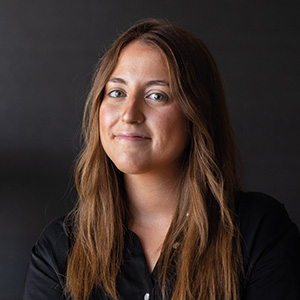
LEONOR RUANO SILVEIRA
Trainee lawyer
E: lrs@servulo.com







